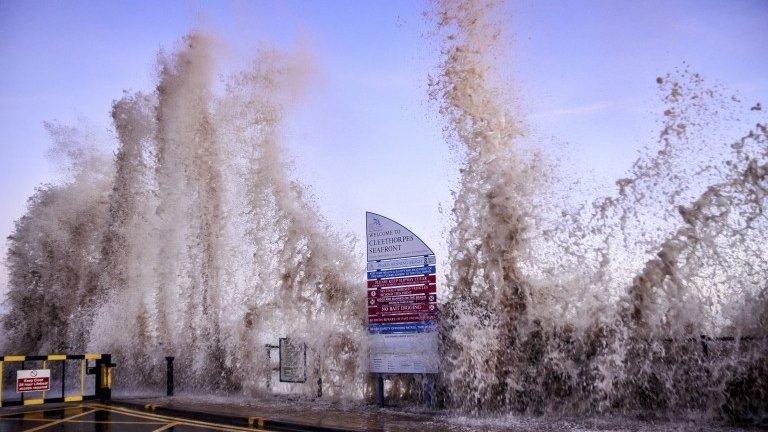Storm surge: Essex, Suffolk and Norfolk braced for overnight high tide
- Published
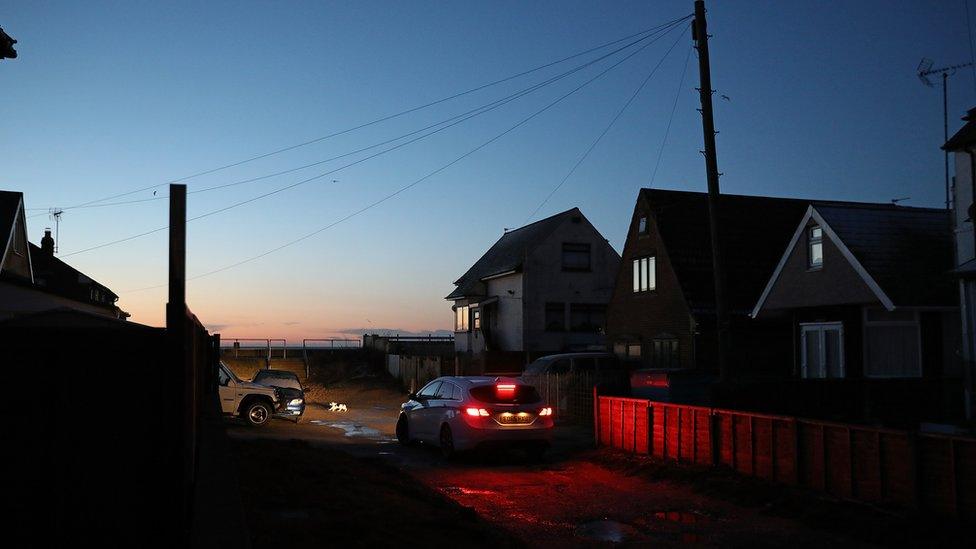
Jaywick is evacuated ahead of the storm surge
Flood defences are being bolstered in the east of England as coastal communities brace themselves for a predicted storm surge overnight.
Seventeen severe flood warnings, external have been issued - meaning there is a danger to life - for the Norfolk and Suffolk coastlines.
About 200 Army troops have arrived in Great Yarmouth, Norfolk, to help evacuate more than 5,000 homes.
But about 70% of residents refused to leave, police said.
In Essex, residents in Jaywick, Mistley and West Mersea have been told to leave their homes - with high tide expected to hit the area at about 00:15 GMT on Saturday.
About 140 people have taken shelter at Tendring Education Centre in Clacton.

Volunteers have been inflating airbeds for evacuees in Jaywick
Essex Police said there was a "mixed" response from residents to the planned evacuation.
Ch Insp Russ Cole said: "We have seen numbers of people using the rest centres in Jaywick increase steadily during the late afternoon.
"I still need anyone who has not yet evacuated their property to do so immediately.
"The flood warning for high tide after midnight remains at severe and there is a threat to life."
More than 10,000 sandbags have been made available in Great Yarmouth to help protect properties.
The risk of flooding was expected to peak at 21:30 on Friday, but fears of a storm surge were not as bad as expected.
Norfolk Police thanked residents and volunteers for their support "in ensuring that the flood risks were minimised".
In a statement, the force said the Environment Agency had been unable to predict just how bad the situation might be as the likelihood of flooding was "so finely balanced".

Those taking shelter at the Tendring Education Centre in Clacton have been allowed to bring pets
The Bascule Bridge in Lowestoft was closed earlier, but has since reopened.
The Mutford Lock Bridge in Oulton Broad has also reopened after being closed earlier.
Train passengers heading to and from Lowestoft were prevented from travelling after 20:00 GMT.
Lowestoft train station and the lines which run into and out of the station closed early.
Further along the Norfolk coast, 80 homes were evacuated in Walcott, south of Cromer.
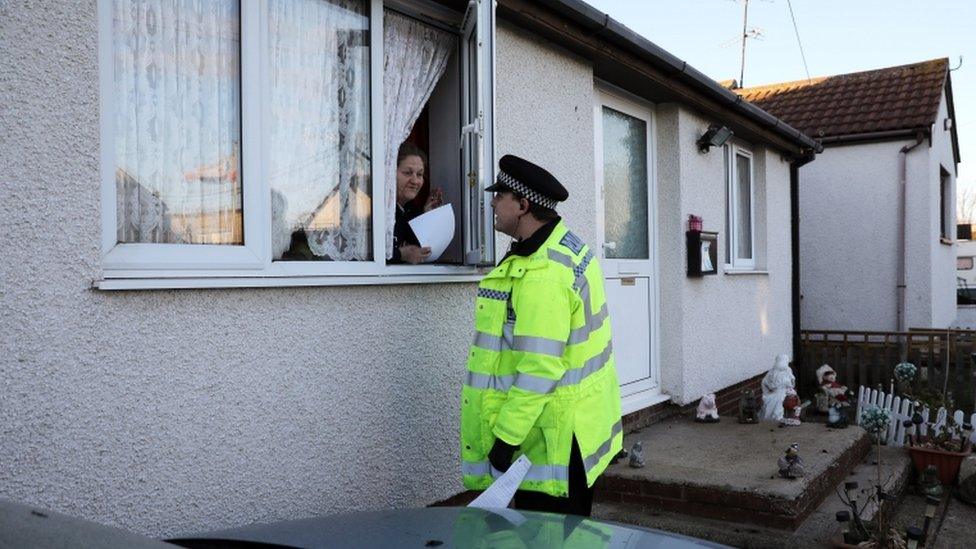
Police officers were advising residents in Jaywick to evacuate ahead of the storm surge
People were also removed from a further 15 properties in Salthouse.
Supt Dave Buckley, of Norfolk Police, said: "This is a significant policing operation underlined by the numbers of properties affected."
He added: "We understand people will be anxious, but this action is necessary on the back of the latest information from the Environment Agency which suggests the threat is significant."
Half of the troops providing assistance in Great Yarmouth are from the Wiltshire-based King's Royal Hussars.
The other 100 are gunners from RAF Honington in Suffolk.
LIVE: Essex prepares for predicted storm surge
LIVE: The latest in Suffolk where nine severe flood warnings are in place
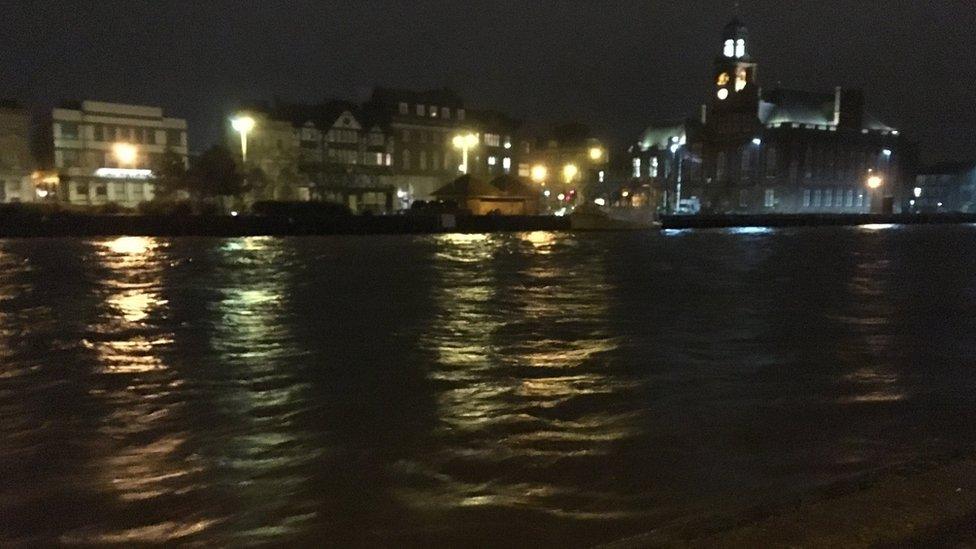
The tide had started to rise in Great Yarmouth
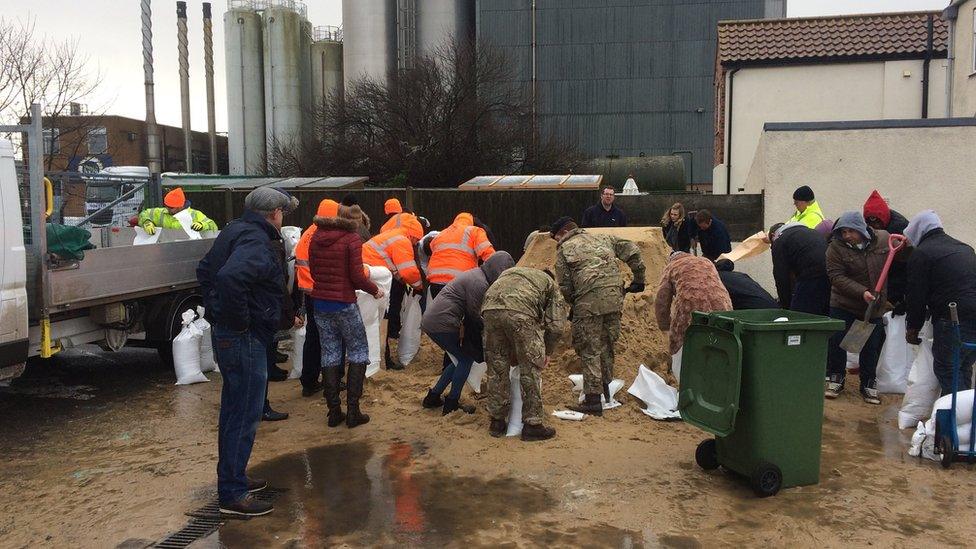
More than 250 tonnes of sand have been used to fill bags in Great Yarmouth
Suffolk Police said about 1,880 properties were at risk of flooding in the county.
The combination of high winds and high spring tides led to water flooding on to seafront roads along the North Yorkshire coastline as high tide occurred on Friday afternoon.
Areas affected included Whitby and Scarborough, where high waves hit temporary flood defences attached to businesses.
At Hornsea in East Yorkshire a family had to be rescued from a car on the town's promenade as the area flooded.
It came as the East Riding of Yorkshire Council began evacuating about 30 properties at risk of flooding in the town.
People living in coastal communities in parts of West Sussex and Hampshire have also been warned to be prepared.
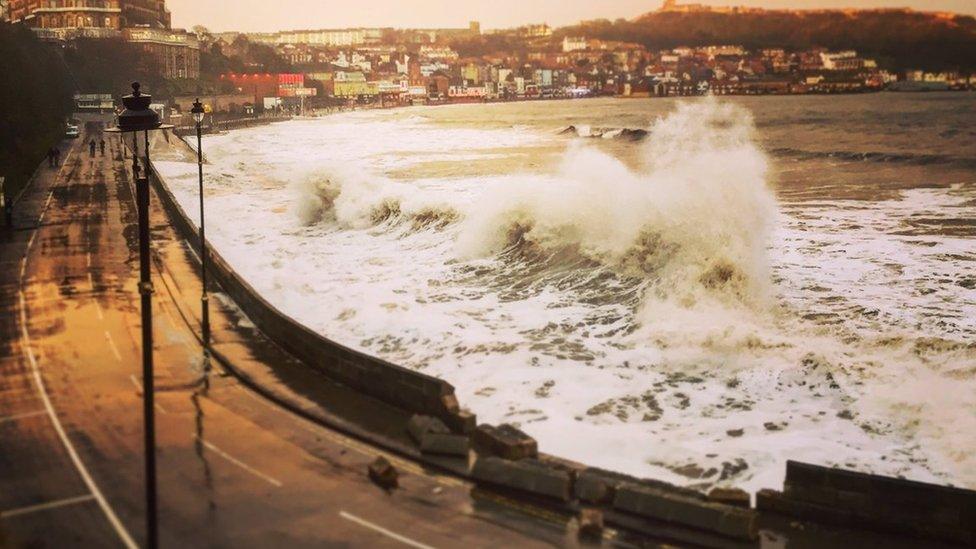
Part of a sea wall outside Scarborough's Spa complex was destroyed by waves
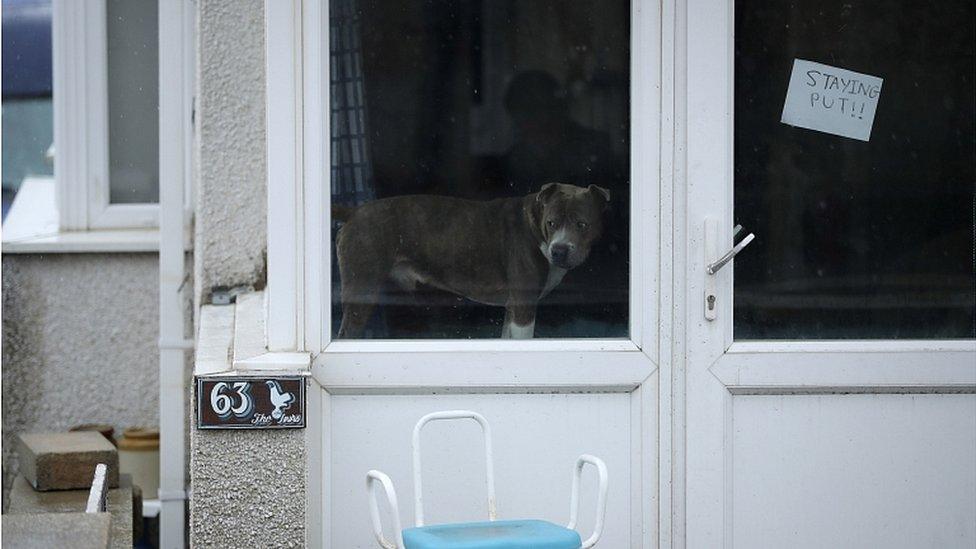
Not all residents plan to leave their homes despite instructions from the police

What causes a storm surge?
The principal cause of a storm surge is high winds pushing the seawater towards the coast.
There is also a smaller contribution from the low pressure at the centre of the storm "pulling" the water level up - a similar effect to what happens when you drink through a straw.
The strong winds can generate large waves on top of the surge which can then damage sea defences or cause water to spill over the top of defences, which increases the flood risk to coastal communities.
Source: The Met Office

- Published12 January 2017

- Published13 January 2017
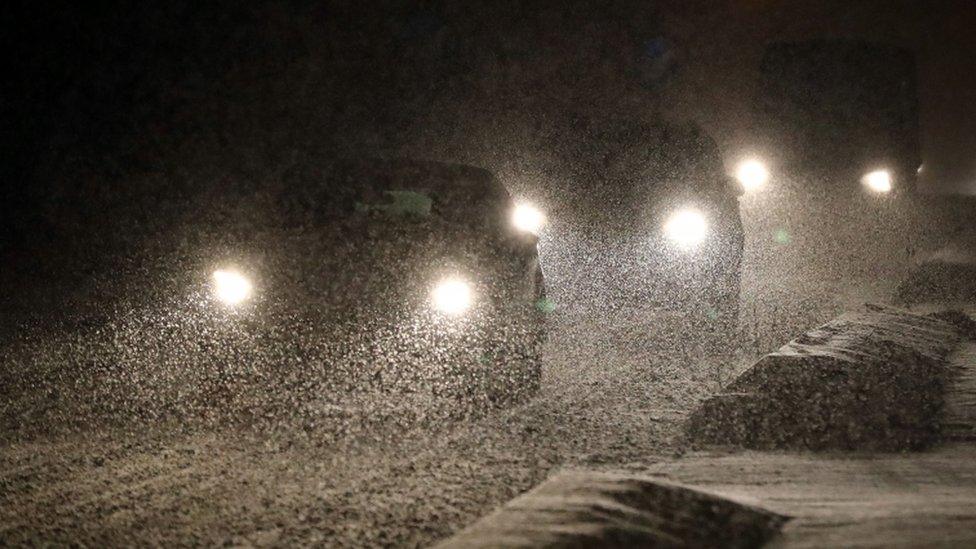
- Published16 June 2022

- Published6 December 2013
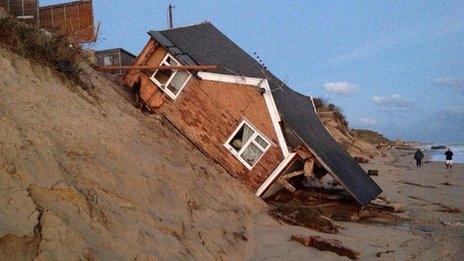
- Published6 December 2013
